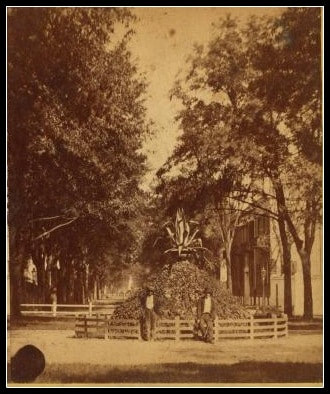 A Haunted City on Sacred American Indian Burial Ground Savannah, Georgia has good reason for carrying a reputation for hauntings, it is said.. Much of the Savannah Historic District rests upon haunted Yamacraw bluff, named after the Yamacraw Creek Indians, the last native tribe to occupy the land before the arrival of James Oglethorpe and the English in 1733. Tomochichi and Belief in The Power of Human Bones In 1728, under the leadership of the Indian mico, or chief, Tomochichi, the Yamacraw settled near the 35-foot high bluff overhanging the Savannah River, which had been the resting place of the their Muscogee ancestors for hundreds of years. The Yamacraw believed the spirits of their ancestors remained with their bones and this belief was manifested in the form of burials in branches of trees -- the flesh picked cleaned by carrion and thier bones --- their bones --- their bones left behind along with some aspect, some form, some lingering presence of the spirit with the bones. A belief in the relationship between the proximity of hauntings to human remains is an element of many Savannah hauntings even today. Thousands of Unmarked Graves and Six Burial Grounds Beneath Savannah Thousands of graves lie under most of Savannah’s historic buildings, squares, and parks, including two Indian burial mounds. The largest of these was built in what later became the Trustees' Garden, located the Pirates House. Another unmarked grave was/is located under the parking lot of the Board of Education building near Chippewa Square. These native burial mounds were sacred to the Yamacraw, and their desecration by the English could well have disturbed the spirits that haunt the bluff...
0 Comments
Your comment will be posted after it is approved.
Leave a Reply. |
Archives
October 2017
Chase Anderson, Founder of Savannah Ghost Walks is a Savannah actor-musician, historian, storyteller and paranormal researcher with ancestral roots in downtown Savannah, Ga.Archives
October 2017
Categories |